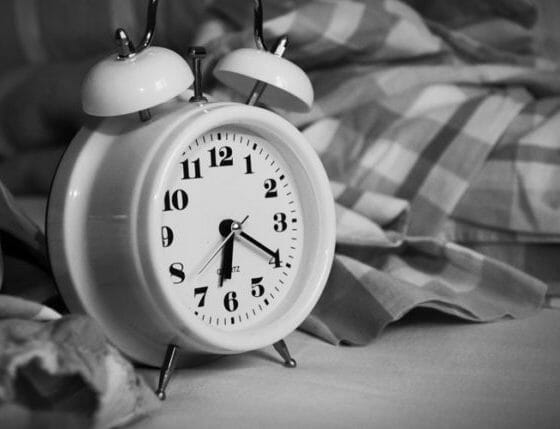The Link Between a Good Night’s Sleep and Good Vision
According to a new study by the Sleep Foundation, most adults require between 7 and 9 hours of sleep each night in order to function at the highest capacity. On the flip side, getting less than five hours of sleep per night can have adverse effects on the body. Symptoms of sleep loss can include trouble focusing, feelings of depression or anxiety, and increased risk of some diseases, among other things.
Not getting enough sleep at night can also affect your motor skills and vision. You may already know something about the link between lack of sleep and dark circles under the eyes, but not getting enough sleep can affect your eyes and vision in even more severe ways. Eyes function best with a minimum of five hours of “shut eye” a night. Here, we take a look at what can go wrong when prolonged lack of sleep negatively affects vision and eyesight.
Vision Problems Linked to Lack of Sleep
Lid Twitching
One of the most common side effects of not getting enough sleep is eye spasms. Eye spasms, or myokymia, is the sudden and uncontrollable twitching of eyelid muscles around the eye. Lid twitching and eye spasms are caused by misfired neurons in the eyelid muscle.
Myokymia is not a serious condition and usually doesn’t require medication to treat. If you experience myokymia, reducing caffeine and increasing the hours that you sleep each night will usually alleviate the symptoms.
Dry Eyes
Without at least five hours of sleep per night, the eyes cannot properly replenish themselves, which can lead to dry or irritated eyes during waking hours. Dry eyes occur when the eyes aren’t properly lubricated, and can lead to symptoms like itchy irritation in and around the eye, redness, and blurred vision.
Eye drops can be relatively effective when trying to treat dry eyes. However, regularly getting a good night of sleep is the only thing that will target the root of the problem.
Other Risk Factors Associated With Sleep Deprivation
After years of sleep deprivation, some adults suffer from Anterior Ischemic Optic Neuropathy (AION). Although it is extremely rare, AION is most common in elderly people, and is characterized by loss of vision, optic disc swelling, and flame hemorrhages.
While the causes of AION are widely controversial, many doctors and scientists believe patients with cardiovascular issues like diabetes, hypertension, and high cholesterol levels are at higher risk. Since all of these cardiovascular risk factors have links to sustained lack of sleep, there may be a link between between AION and years of sleep deprivation.
Because sleep deprivation is detrimental to your health and can increase the risk of certain diseases, lack of sleep has also been linked to health issues like glaucoma. Glaucoma is an eye condition where pressure builds up in the eye; this can eventually lead to loss of vision.
Tips for Getting a Good Night of Sleep, for Your Eyes’ Sake
Set intentions to go to bed at the same, reasonable hour every night, and wake up at the same time every morning as best you can. A regular sleep schedule will help you fall asleep faster and maintain healthy energy levels. Try to engage in exercise every day, as this will also make it easier to fall asleep.
Avoid looking at your phone or other bright screens within two hours of going to sleep. If you experience insomnia, sleep apnea, or other serious sleeping issues, contact your doctor so that you can get the help you need to get on a regular sleeping schedule.

